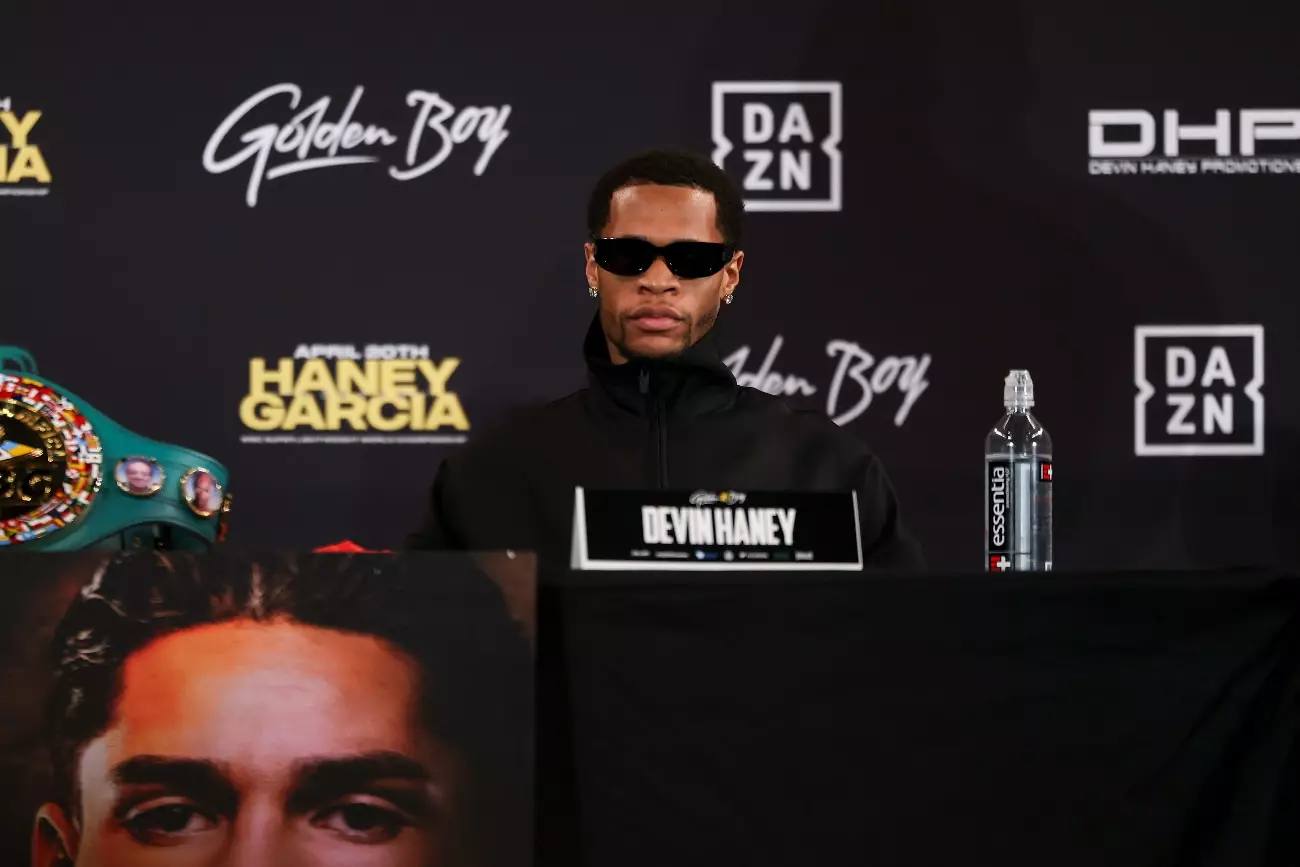In recent years, boxing has come under intense scrutiny due to a growing number of fighters testing positive for performance-enhancing drugs (PEDs). This alarming trend has tarnished the reputation of the sport and sown seeds of distrust among fans, fighters, and promoters alike. The consensus within this community is clear: an increase in regular drug testing is not just beneficial; it’s essential for maintaining the integrity and safety of boxing. The rampant drug use has prompted a collective outcry for stricter measures, and the implementation of year-round testing programs offers a glimmer of hope for change.
Devin Haney: A Pioneer for Clean Sports
Among the voices advocating for reform, former two-weight champion Devin Haney stands out as a beacon of integrity. His recent decision to enroll in the Voluntary Anti-Doping Association’s (VADA) year-round testing program marks a significant moment in the sport’s ongoing battle against drug use. Haney’s willingness to subject himself to random testing for the next three years is a bold statement about his commitment to transparency and fairness in boxing. This move is particularly significant given his tumultuous history with opponents like Ryan Garcia, whose failed drug test turned a high-stakes matchup into a controversial no-contest.
As Haney prepares for his upcoming fight—details of which remain unconfirmed—the boxing world watches closely. Fans are optimistic that his example will inspire other prominent fighters to follow suit, potentially ushering in a culture of accountability and ethical conduct in boxing.
Learning from Past Controversies
Haney’s proactive stance is especially poignant given the backdrop of his experiences dealing with Garcia’s recent drug scandal. Frustrated by the ramifications of the situation, he even went as far as to file a lawsuit against Garcia, citing serious claims including battery and fraud. His determination to press the issue reflects a growing frustration among fighters and fans alike, who crave a level playing field. The prospect of a rematch with Garcia looms on the horizon, stirring debate over whether the latter will be willing to adopt the same rigorous testing regimen. While Haney appears poised to uphold the standards of fair play, it remains to be seen if others in the sport will be equally committed.
Significantly, Haney’s commitment to year-round testing could very well initiate a paradigm shift within boxing. If successful, it could set the standard for how boxers are held accountable for their actions both in and out of the ring. The testing program means that Haney will be subject to random drug testing year-round, regardless of whether he is actively training for a fight. This level of transparency is largely unprecedented and could pave the way for similar commitments from other athletes in the sport.
Moreover, the ramifications extend beyond just individual fighters. A culture that embraces regular testing has the potential to enhance the credibility of boxing as a whole. Promoters, organizations, and fans might find themselves more willing to invest in and support fighters who demonstrate a commitment to clean sport. Imagine a future where the stigma surrounding doping is diminished, and the sport is once again perceived as a contest of skill and talent instead of a battleground for chemically-enhanced athletes.
Despite the positive potential of Haney’s initiative, challenges remain. The boxing community has often been resistant to change, and certain fighters may prioritize short-term gains over long-term integrity. Thus, while Haney deserves commendation for his bold steps toward a cleaner sport, the question remains: how many of his peers will share his sense of duty?
Devin Haney’s courageous foray into comprehensive drug testing is a breath of fresh air amid a cloud of skepticism. It is a clarion call for boxers to uphold the integrity of the sport, and it presents an opportunity for countless athletes to emulate such commitment. Boxers and boxing enthusiasts alike now stand at a crossroads, with the potential to redefine the narrative surrounding drug use in their beloved sport. Whether this movement gains traction will depend greatly on the collective response of the boxing community, but for now, Haney’s commitment is a promising first step.

